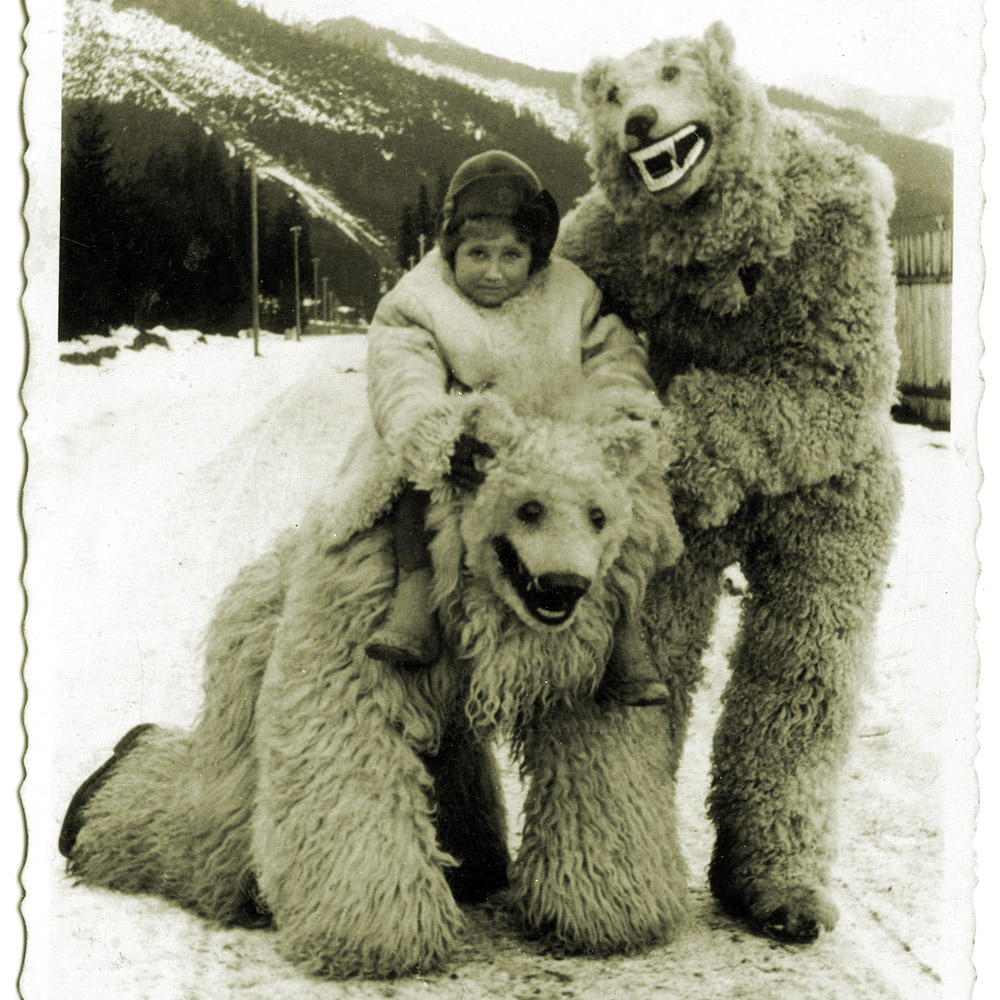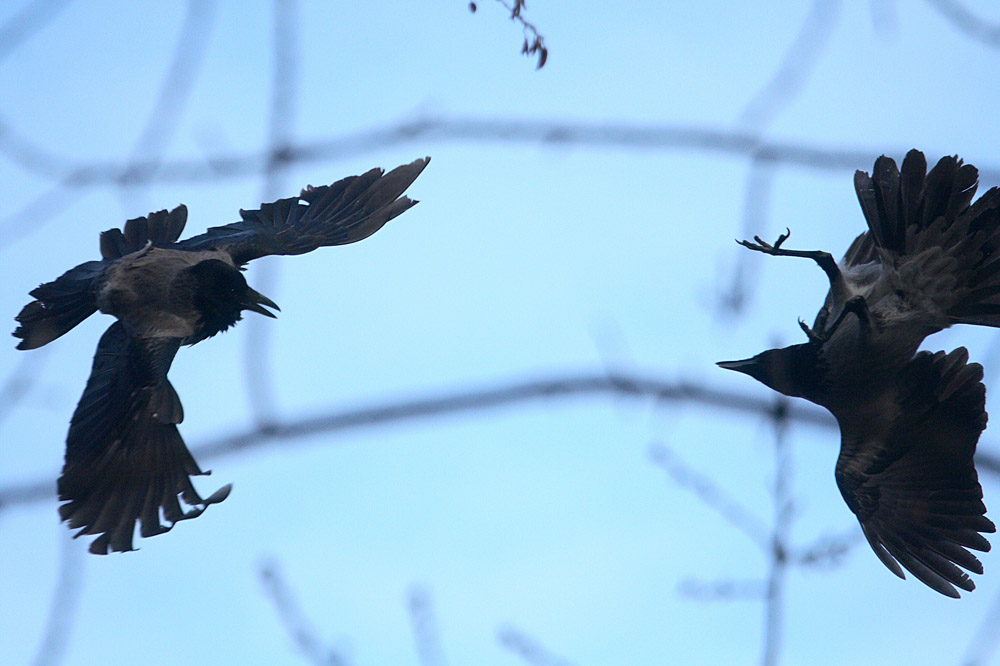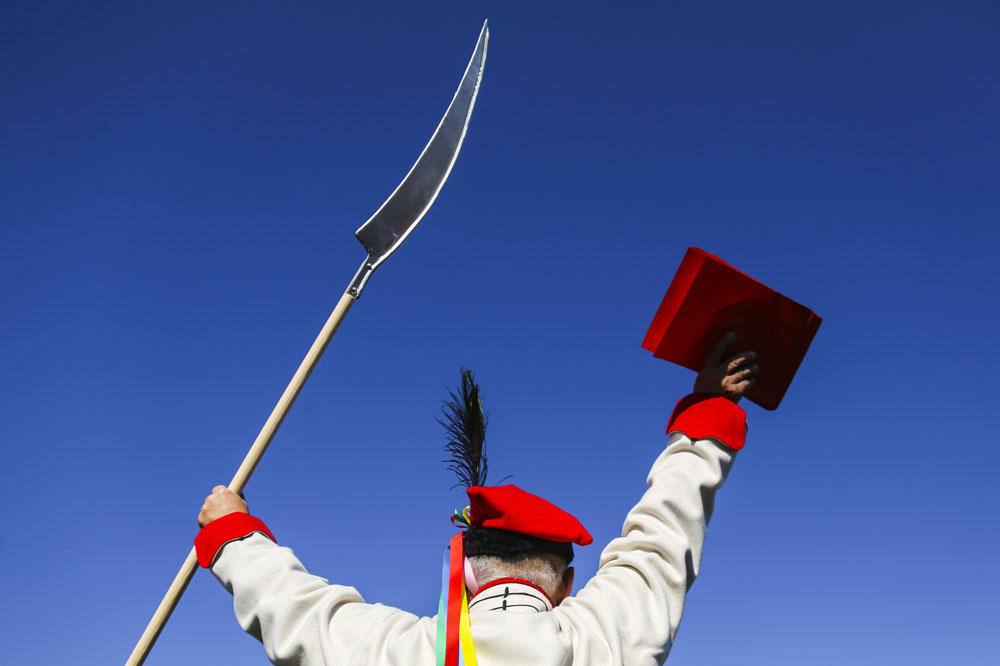The Eternal Wisdom of Polish Proverbs
If proverbs are indeed the practical wisdom of a nation, then what do Polish proverbs have to tell us about the wisdom of the Poles?
As common Polish wisdom has it, there’s supposed to be a proverb for every occasion. Browsing through the mind-blowing expanse of Polish paraemiography, one can’t help but feel that most of the time there’s usually even more than one. More often than not, that they actually represent opposite views. So is there anything like proverbial philosophy, and if so what would the philosophy of Polish folklore be?
Here’s a look at the most popular, interesting and awkward Polish proverbs. What do they say about Polish cultural and historical reality? What happens when you translate them? And what you can learn from them? Because, as one Polish proverb claims, 'Two words are enough for a wise head,' or Mądrej głowie dość dwie słowie!
There’s an old Polish proverb that says…
 George Peppard as Banacek (right), an undisputed champion of the Polish proverb, with Ralph Manza, 1972-1974, photo: East News
George Peppard as Banacek (right), an undisputed champion of the Polish proverb, with Ralph Manza, 1972-1974, photo: East NewsThe question we should start with is: are ‘Polish proverbs’ really a thing in the first place? If so, where should we look for authentic ones? Well, certainly not in American popular culture. Perhaps the most famous case of a show celebrating the argumentative force of (allegedly) Polish proverbs came in the 1972 crime series Banacek. The dubiously handsome protagonist of the show, a freelance insurance investigator of Polish origins, played by George Peppard, regularly uses supposedly Polish proverbs, mostly absurd stuff like this:
- Only someone with nothing to be sorry about smiles at the rear of an elephant.
- A duck with three wings and a loaf of bread is a brother to the turkey.
- Though the hippopotamus has no stinger in his tail, a wise man would rather be sat on by a bee.
As you can see, these are not Polish proverbs but rest assured, Polish has also some outrageous stuff out there, so just read on.
So where do we start our search for original Polish proverbs? The first step could be to look for some actual indigenous animals. So forget Banacek’s elephants, hippopotami or tigers – and meet the true animal kingdom of the Polish proverb.
Animals in Polish proverbs
 One child and two bears (or bear skins), photo: Andrzej Sidor / FORUM
One child and two bears (or bear skins), photo: Andrzej Sidor / FORUMTo divide the skin while it’s still on the bear
- Polish original: Nie dziel skóry na niedźwiedziu
- English equivalent: Don’t count your chickens before they’re hatched.
The bear (Polish: niedźwiedź) is featured prominently in many Polish proverbs and sayings – a likely trace of a one-time ubiquitous presence of these wild animals in Polish forests. The literal sense of the proverb invokes an image of a hunter contemplating what he will do with the bear’s skin before he actually hunts the bear. The phrase is often used in Polish as a call 'not to divide the skin while it’s still on the bear!' and can apply to any untimely future plans.
Another popular idiomatic phrase speaks of a ‘bear’s favour’, or a niedźwiedzia przysługa, which is a favour which, when granted, ends up being more trouble than it was worth.
A wolf carried away [its prey] many a time, [but] was eventually carried away itself
- Polish original: Nosił wilk razy kilka ponieśli i wilka
- English equivalent: Long goes the pitcher to the well it gets broken at last.
Another wild animal featured prominently in Polish proverbs is the wolf. The proverb is used to express the idea that there’s an end to all ruthless actions and this end comes inevitably, no matter how powerful a person seems at the time. Or as another popular phrasal expression goes, Przyjdzie kryska na matyska! (Matthew will meet his end, sort of).
If you like wolves and language, you might enjoy another strange Polish phrase forbidding calling the wolf out of the woods: nie wywołuj wilka z lasu!
How about birds?
Better a sparrow in hand than a pigeon on the roof
- Polish original: Lepszy wróbel w garści niż gołąb na dachu
- English equivalent: A bird in the hand is worth two in the bush
As you can see, Polish is more specific and perhaps practical in its use of bird species (sparrows and pigeons), where English favours the more general 'birds.' Thus, the quantitative criterion is also missing from the Polish. The question remains: what do you do with a bird/sparrow in hand?
Once among the crows, caw as they do
 Crows playing war, photo: Dawid Tatarkiewicz / FORUM
Crows playing war, photo: Dawid Tatarkiewicz / FORUM- Polish original: Kiedy wejdziesz między wrony musisz krakać tak jak one
- English equivalent: When in Rome do as the Romans do
This Polish proverb may be understood as a general call for social conformism – or is it just some common sense in the face of an adverse environment? Either way, a bit of mimicry and authentic camouflage won’t kill you. If you need more proof, you may find another Polish bird proverb helpful: Kruk krukowi oka nie wykole –‘A crow won’t pick another crow’s eye out.’
Polish proverbial pessimism
Misfortunes come in pairs
- Polish original: Nieszczęścia chodzą parami.
- English equivalent: Misery loves company
Another English equivalent could be the phrase 'it never rains but pours' – which however highlights the intensity of misfortune rather than its quantity, whereas the Polish equivalent is explicitly concerned with number of misfortunes. In fact, the suggestion is that bad things which happen to you in life, come in pairs or tandems (imagine them walking hand in hand). This is usually construed to mean that something bad is often followed by yet another disaster. The good news is that the Polish streak of bad luck is limited to two items only.
From the rain, straight under the drainpipe
 Summer at the Polish sea side, photo: Łukasz Dejnarowicz / FORUM
Summer at the Polish sea side, photo: Łukasz Dejnarowicz / FORUM- Polish original: Z deszczu pod rynnę.
- English equivalent: Out of the frying pan and into the fire.
This proverb presents quite an expressive image for an otherwise universal situation, in which a bad situation ends up getting worse despite attempts to improve it. But where the English employs a continuum of hotness to express the growing discomfort, Polish goes for cold and wet. This awful rainy weather is described in Polish as leje jak z cebra – ‘it’s pouring as if from a bucket.’
A Pole is wise after the harm’s been done.
- Polish original: Mądry Polak po szkodzie
Polish metaphysical pessimism is perhaps best encapsulated in this self-referential statement (though ‘Pole’ here can be also translated as 'man' in general). The phrase is usually used in the aftermath of any kind of failure which causes substantial harm but which in retrospect seems easily avoidable, and at that time is nothing but an obvious lesson in practical wisdom.
Hope is the mother of the stupid
- Polish original: Nadzieja matką głupich
This obviously metaphorical but hardly elegant saying is used to express an otherwise rational idea that hope alone, which usually manifests itself in idle waiting, will not bring any material effect if it is not supported by a fair deal of serious activity and work. A complementary saying defines hope as 'the last die' (nadzieja umiera ostatnia).
Luxury vs. modesty
You can’t get a headache from abundance
- Polish original: Od przybytku głowa nie boli
- English equivalents: A store is no sore; keep a thing seven years and you'll find a use for it.
While modesty is certainly a virtue, some Polish proverbs make a case for the contrary. This one, opposite to some now fashionable trends in contemporary household minimalism, argues that one actually can’t have too many things. But rather than a sign of contemporary capitalist lavish abundance, the proverb is likely a relic of more traditional household economics where all items could at one point be used again, re-purposed or recycled.
The Polish need for splendour finds its ultimate expression in the traditional saying zastaw się a postaw się. Difficult to translate, and a bit ambivalent, the phrase can function as an incentive to spend more than you have, if only for one special occasion – or a slightly ironic critique of precisely this approach.
If you don’t have what you like, like what you have
- Polish original: Jak się nie ma, co się lubi, to się lubi, co się ma.
This common sense wisdom hardly needs any explanation. The proverb nowadays seems vaguely connected with the shortage of goods under the communist regime, where its usage was understandably broader.
Practical advice
(Hidden) from the eyes, (out) from the heart
- Polish original: Co z oczu, to z serca
- English equivalent: Out of sight, out of mind
Luckily, the centuries-old Polish proverbial philosophy also developed some more uplifting phrases: This one suggests that when you don;t have something right in front of you, that you stop thinking about it, you somehow detach from it. The practical result: it doesn’t bother you anymore (pertaining to heartache, mostly). While this may be quite an accurate psychological description of our everyday routine, it’s surely not something that most psychoanalysts would subscribe to. Well, practical proverbial wisdom knows better.
As you make your bed, so you must lie
- Polish original: Jak sobie pościelesz, tak się wyśpisz.
- English equivalent: What you reap is what you sow.
The meaning of this is pretty much the same as that of the English ‘what you reap is what you sow.’ You can blame or praise only yourself for your ups and downs in life... and, you know, beauty sleep is important!
He who digs pits for others will fall in them himself
- Polish original: Kto pod kim dołki kopie, ten sam w nie wpada.
The scheme will always turn against the schemer. This proverb could be considered a more pessimistic version of ‘what goes around comes around.’ The latter suggesting that good karma can also come back to you. The Polish version focuses on the bad things (of course) that can come back to haunt you…
Where there are six cooks, there’s nothing to eat
 Kitchen of the farmers' club in Młynary near Pasłek 1960s, photo: Wojtek Laski / East News
Kitchen of the farmers' club in Młynary near Pasłek 1960s, photo: Wojtek Laski / East News- Polish original: Gdzie kucharek sześć, tam nie ma co jeść.
- English equivalent: Too many cooks spoil the broth.
This popular proverb suggests that a surplus of people involved in an activity (any activity, not only cooking) can spoil the overall effect. Note: the gender stereotype hidden in the Polish phrase, where the form kucharki (sg: kucharka) suggests that being a cook is traditionally a chore for women. Note no. 2: six (sześć) is there for the rhyme.
Old love does not corrode
 The so-called padlocks of love in Zamość, photo: Tomasz Rytych / East News
The so-called padlocks of love in Zamość, photo: Tomasz Rytych / East News- Polish original: Stara miłość nie rdzewieje.
- English equivalent: Old love dies hard.
This proverb suggests that an old flame never dies. The metaphorical phrasing may suggest that true love is some kind of stainless metal which does not corrode with time.
Sharp oblong objects
This brings us to sharp objects which – as it turns out – are good material for all kind of proverbial wisdom. Here are a couple of examples:
The scythe met the stone
 The power of the scythe, photo: Beata Zawrzel/East News
The power of the scythe, photo: Beata Zawrzel/East News- Polish original: Trafiła kosa na kamień.
- English equivalents: Diamond cut diamond; it takes one to know one.
This is something you say when you see that a person known for his/her cruelty, finally meets their match. Which obviously raises some sense of Schadenfreude or at least a smirk on the part of the person speaking.
The awl has come out of the sack
- Polish original: Wyszło szydło z worka.
- English equivalent: Let the cat out of the bag.
This figurative phrase refers to any situation when the hidden truth finally comes to light; it is often used in conjunction with bringing to light someone's hidden motives.
The drowning man catches at a razor blade
- Polish original: Tonący brzytwy się chwyta.
- English equivalent: A drowning man clutches at straws.
A drowning man clutches at straws, offers a similar image, and yet the Polish razor blades seems like an even more poignant image of despair (and of macabre, too).
Every stick has two ends
- Polish original: Każdy kij ma dwa końce.
- English equivalent: There are two sides to every story.
What seems like a banal assertion of a fact, it has a deeper meaning which in English is usually expressed by the phrase ‘it’s a mixed blessing.’ However, it can also be interpreted as ‘a double-edged sword'. So beware, because it seems every proverb has two ends...
Horses and carts…
When the hag gets off the cart, the horses have it easier
- Polish original: Baba z wozu, koniom lżej.
- English equivalent: Good riddance to bad rubbish.
Polish seems to have a predilection for proverbs featuring carts and horses (a possible trace of a prevalently rural character of the Polish society in the past?) This one happens to have a woman on it - or rather a baba, an offensive term meaning a hag or crone. Here she is considered a useless person on the wagon (one could say she is 'a fifth wheel'), which also presupposes that the person driving the cart is a man. In other words, a woman seems just a redundant extra load that needs to be disposed of… But this somewhat sexist proverb is actually used when referencing getting rid of anything or anyone that is a useless and troublesome burden.
Once on the wagon, once underneath it
 Pilgrims on their way to Częstochowa, photo: Wojciech Gadomski / REPORTER
Pilgrims on their way to Częstochowa, photo: Wojciech Gadomski / REPORTER- Polish original: Raz na wozie, raz pod wozem
- English equivalent: What goes up must come down; You win some, you lose some
Another cart proverb...The Polish phrasing can be seen as a more figurative equivalent of the popular metaphor of the ever-turning wheel of fortune, which represents fortune (luck) as a wheel, taking people up and down. Sidenote: riding under a cart would probably be extremely painful.
Lord’s grace rides on a motley horse
- Polish original: Łaska Pana na pstrym koniu jeździ.
Another proverb and another horse. The figurative sense of the Polish sentence is that the favour of people in high positions is always uncertain and can change on a whim. This can be a reflection on the social hierarchy which had the lower classes dependent on the upper classes.
The master’s eye makes the horse fat
- Polish original: Pańskie oko konia tuczy.
Another horse and another master. This ancient proverb states that looking after your possessions will bring good results.
• • •
Animals, sharp objects, pessimism and wagons... one can sure learn some important life lessons from the abundant treasure trove of Polish proverbs. So... live long and prosper! (That one isn't exactly Polish...)
Author: Mikołaj Gliński, 4 April 2017
Tytuł (nagłówek do zdjęcia)
Quarks, Elephants & Pierogi:
Poland in 100 Words
[{"nid":"5688","uuid":"6aa9e079-0240-4dcb-9929-0d1cf55e03a5","type":"article","langcode":"en","field_event_date":"","title":"Challenges for Polish Prose in the Nineties","field_introduction":"Content: Depict the world, oneself and the form | The Mimetic Challenge: seeking the truth, destroying and creating myths | Seeking the Truth about the World | Destruction of the Heroic Emigrant Myth | Destruction of the Polish Patriot Myth | Destruction of the Flawless Democracy Myth | Creation of Myths | Biographical challenge | Challenges of genre | Summary\r\n","field_summary":"Content: Depict the world, oneself and the form | The Mimetic Challenge: seeking the truth, destroying and creating myths | Seeking the Truth about the World | Destruction of the Heroic Emigrant Myth | Destruction of the Polish Patriot Myth | Destruction of the Flawless Democracy Myth | Creation of Myths | Biographical challenge | Challenges of genre | Summary","topics_data":"a:2:{i:0;a:3:{s:3:\u0022tid\u0022;s:5:\u002259609\u0022;s:4:\u0022name\u0022;s:26:\u0022#language \u0026amp; literature\u0022;s:4:\u0022path\u0022;a:2:{s:5:\u0022alias\u0022;s:27:\u0022\/topics\/language-literature\u0022;s:8:\u0022langcode\u0022;s:2:\u0022en\u0022;}}i:1;a:3:{s:3:\u0022tid\u0022;s:5:\u002259644\u0022;s:4:\u0022name\u0022;s:8:\u0022#culture\u0022;s:4:\u0022path\u0022;a:2:{s:5:\u0022alias\u0022;s:14:\u0022\/topic\/culture\u0022;s:8:\u0022langcode\u0022;s:2:\u0022en\u0022;}}}","field_cover_display":"default","image_title":"","image_alt":"","image_360_auto":"\/sites\/default\/files\/styles\/360_auto\/public\/2018-04\/jozef_mroszczak_forum.jpg?itok=ZsoNNVXJ","image_260_auto":"\/sites\/default\/files\/styles\/260_auto_cover\/public\/2018-04\/jozef_mroszczak_forum.jpg?itok=pLlgriOu","image_560_auto":"\/sites\/default\/files\/styles\/560_auto\/public\/2018-04\/jozef_mroszczak_forum.jpg?itok=0n3ZgoL3","image_860_auto":"\/sites\/default\/files\/styles\/860_auto\/public\/2018-04\/jozef_mroszczak_forum.jpg?itok=ELffe8-z","image_1160_auto":"\/sites\/default\/files\/styles\/1160_auto\/public\/2018-04\/jozef_mroszczak_forum.jpg?itok=XazO3DM5","field_video_media":"","field_media_video_file":"","field_media_video_embed":"","field_gallery_pictures":"","field_duration":"","cover_height":"991","cover_width":"1000","cover_ratio_percent":"99.1","path":"en\/node\/5688","path_node":"\/en\/node\/5688"}]